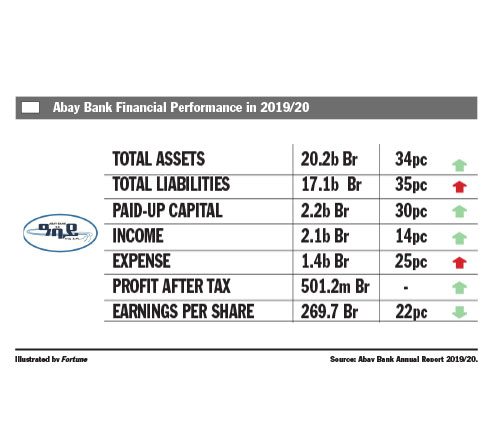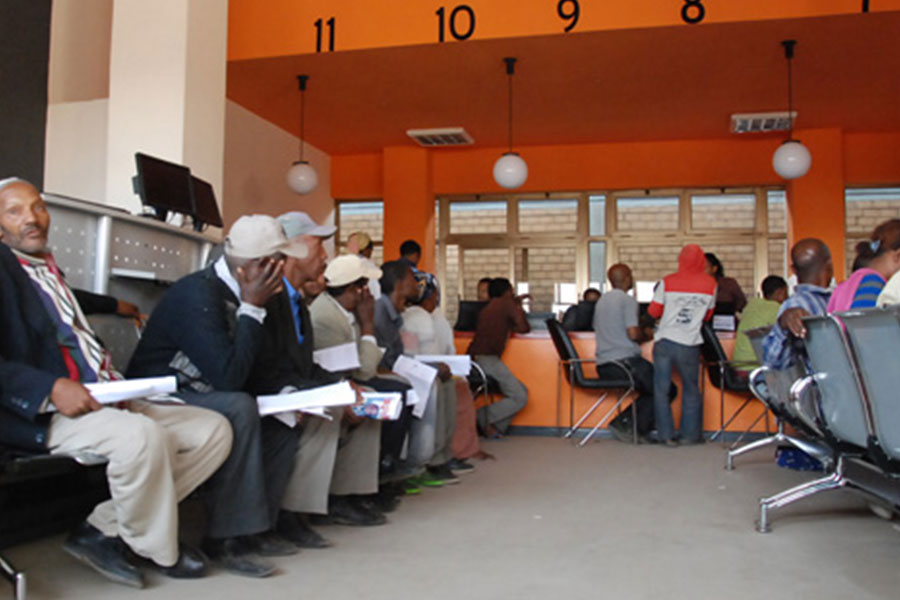
Fortune News | Apr 10,2021
Abattoirs that process meat for export should hold international veterinary certifications when a bill ends the legislative cycle.
If passed, the law will criminalise meat export without the certification, punishable by up to five years imprisonment and a fine not exceeding 50,000 Br. The newly-established Agricultural Authority will issue the certificates based on the terrestrial animal health code introduced in 1968.
Experts at the Ministry of Agriculture (MoA) have been working on the draft proclamation for the last two years. It was sent to the Ministry of Justice last week for the last reading, disclosed Sisay Getachew, director of veterinary public health.
The Ministry is responsible for issuing export permits, which the abattoirs are required to renew every year. Though there are 12 registered export abattoirs in the country, only nine are actively involved in export.
Over the last decade, annual export revenues from meat have rarely surpassed the 100 million dollar mark. Last year, 16,625tn of meat were exported from Ethiopia, earning it 75.3 million dollars. An all-time high volume of meat, 20,547tn, was exported in 2018, generating 103.3 million dollars. Sheep and goat meat account for the largest share. The biggest buyers are the United Arab Emirates (UAE) and Saudi Arabia, which account for nearly 90pc.
Experts and industry players are not too keen on the bill's proposed veterinary requirement.
With six branches, including Bishoftu and Dire Dawa, Elfora Agro Industries Plc processes 2,000 sheep and goats a day. The company exports chilled meat to the UAE, Saudi Arabia, and Yemen; and, frozen meat to Egypt.
Under the prevailing circumstances, exporting meat is not a profitable enterprise, according to Zekeria Muhammed, commercial manager of Elfora, a subsidiary of the MIDROC Investment Group.
“The floor price is much lower than the domestic market's offer,” Zekeria told Fortune.
Exporters are required to charge at least 5.6 dollars for every kilogramme of meat they ship. The threshold export price, which has been the same for the last five years, is one of the factors discouraging exporters, says Abreha Negash, director of research for livestock and meat products at the Meat & Dairy Industry Development Institute.
“Most companies export to get foreign currency,” said Zekeria. "That motivation is thinning due to the government's recent retention policy."
In January, the central bank issued a directive compelling exporters to surrender 70pc of their earnings. Though officials say the motive behind the new requirement is to boost export revenues and expand market destinations, experts say there is much work to be done to make that happen.
Negassie Ameha (PhD) is an animal science lecturer at Haromaya University. He noted that geographic proximity is not why Ethiopian abattoirs prefer to export to the Middle East. According to him, requirements in Middle Eastern countries are more flexible than in European countries.
The European requirements start with the age of the slaughtered animal. European countries require goat and sheep meat under a year weighing between 10Kg and 25Kg.
“It is a tough bar to meet in a country like Ethiopia, where livestock is seen as assets and kept for a longer period,” said Negassie.
South Africa, Namibia and Botswana remain the only sub-Saharan African countries that export to the European market. The expert says exporters struggle to meet even the relatively lighter standards of Middle Eastern countries. In 2012, and again in 2015, meat exported from Ethiopia was banned by Gulf countries due to safety concerns.
Countries like Saudi Arabia and the UAE appointed the Oromia Islamic Affairs Supreme Council in 2016 to monitor abattoir operations and ensure animals are slaughtered in compliance with the Islamic faith. Fikadu Wondosen, secretary of the Ethiopian Meat Producer-Exporters Association, says most meat export companies are Halal-certified, equipped with livestock reception pens, automatic and semiautomatic mechanical slaughter, and processing equipment.
Established in 2003, the lobby group represent seven export abattoirs.
Meeting Halal requirements is mandatory to secure markets in the Middle East. Halal certification is growing in importance outside Islamic countries. The UK and France are examples of markets with increasing demand for Halal meat.
Eatsafe, a company incorporated in 2018, also issues Halal certificates. It was appointed as a local representative by the Gulf Cooperation Council, an entity tasked with Halal certification for Gulf countries, in 2020. Halal certification involves meeting three requirements - safety, quality and customer value, says Biruk Fikadu, director of Eatsafe for training and capacity building. Eatsafe conducts facility audits before issuing a Halal certificate, which could take up to six months and 300,000 Br.
Eatsafe has certified two abattoirs in Ethiopia thus far.
Incorporated in 2012, Al-Nujum Export Slaughterhouse Plc is one of the two. Located in Dukem town, 35Km southeast of Addis Abeba, it shipped up to 500tn of meat annually to the Middle East until 2020. However, export volumes have since fallen by half, according to Hannan Mohammed, deputy manager of the company. Over the past half-year, the company exported 130tn.
According to Hanan, the Halal certificate issued by Eatsafe has little importance to Al-Nujum. The Deputy Manager says the company relies mainly on the certificate issued by the Oromia Islamic Affairs Supreme Council. However, Hannan observed that Eatsafe’s certification would be instrumental when the company starts to export outside the Middle East.
“We're planning to expand our export destinations to Indonesia and Malaysia," Hannan told Fortune.
Exporters must also contend with a shortage in livestock supply and poor quality. The challenges mean meat processing facilities operate at less than 40pc of capacity.
Al-Nujum uses only five percent of its capacity, Hannan disclosed to Fortune.
PUBLISHED ON
Apr 22,2022 [ VOL
23 , NO
1147]

Fortune News | Apr 10,2021

Radar | Oct 17,2020

Agenda | Jun 12,2021

Sunday with Eden | Jun 13,2020

Fortune News | Jan 26,2019

Fortune News | Sep 11,2020

Radar | May 21,2022

Radar | May 07,2022

Commentaries | Oct 03,2024

Fortune News | Mar 07,2020

Dec 22 , 2024 . By TIZITA SHEWAFERAW
Charged with transforming colossal state-owned enterprises into modern and competitiv...

Aug 18 , 2024 . By AKSAH ITALO
Although predictable Yonas Zerihun's job in the ride-hailing service is not immune to...

Jul 28 , 2024 . By TIZITA SHEWAFERAW
Unhabitual, perhaps too many, Samuel Gebreyohannes, 38, used to occasionally enjoy a couple of beers at breakfast. However, he recently swit...

Jul 13 , 2024 . By AKSAH ITALO
Investors who rely on tractors, trucks, and field vehicles for commuting, transporting commodities, and f...

Oct 25 , 2025
The regulatory machinery is on overdrive. In only two years, no fewer than 35 new pro...

Oct 18 , 2025
The political establishment, notably the ruling party and its top brass, has become p...

Oct 11 , 2025
Ladislas Farago, a roving Associated Press (AP) correspondent, arrived in Ethiopia in...

Oct 4 , 2025
Eyob Tekalegn (PhD) had been in the Governor's chair for only weeks when, on Septembe...